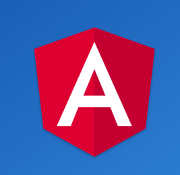| Angular 13 Includes Ivy Improvements |
| Written by Kay Ewbank | |||
| Thursday, 11 November 2021 | |||
|
Angular 13 is now available, with improvements including expansion of the Ivy-based features and optimizations. Ivy is the code name for Angular's next-generation compilation and rendering pipeline. Angular is an open source TypeScript-based web application framework that can be used for building JavaScript apps and dynamic web pages. Following work on its development by Google, it has gained widespread support.
Prep work for Ivy began in Angular 12, and the developers say in this release they have: "landed some impactful changes in v13 as Ivy continues to open doors for optimizations and improvements." The first of these changes is actually a removal of the View Engine. This is no longer available in Angular v13, which the team says is great news because Angular can continue to create Ivy-based features that bolster your productivity with the platform. Removing View Engine also means that Angular can reduce its reliance on the ngcc Angular compatibility compiler in the future. The developers say removing the View Engine should lead to faster compilation because metadata and summary files are no longer included. The next changes are to the Angular Package Format (APF). This has been streamlined and modernized, though this does mean that some of the older output formats have been removed, including View Engine specific metadata. Instead, it is now standardized on more modern JS formats such as ES2020. This means that libraries built with the latest version of the APF will no longer require the use of ngcc, so library developers can expect leaner package output and faster execution. The APF has also been updated to support Node Package Exports. This will help developers from inadvertently relying on internal APIs that may change. The component API has also been updated and simplified, again as part of the Ivy improvements. Before the changes in Angular v13, dynamically creating components required a lot of boilerplate code. The new API removes the need for ComponentFactoryResolver being injected into the constructor, and creates the opportunity to instantiate the component with ViewContainerRef.createComponent without creating an associated factory. There are also changes to the framework dependency. RxJS 7.4 is now the default for apps created with ng new, and there’s now support for TypeScript 4.4. Angular 13 is available now.
More InformationRelated ArticlesAngular 12 Moves Closer To Ivy Angular 11 Released With Byelog Goal Complete Angular 8 Adds Default Differential Loading AngularJS 2.0 Is Radically Different
To be informed about new articles on I Programmer, sign up for our weekly newsletter, subscribe to the RSS feed and follow us on Twitter, Facebook or Linkedin.
Comments
or email your comment to: comments@i-programmer.info |



